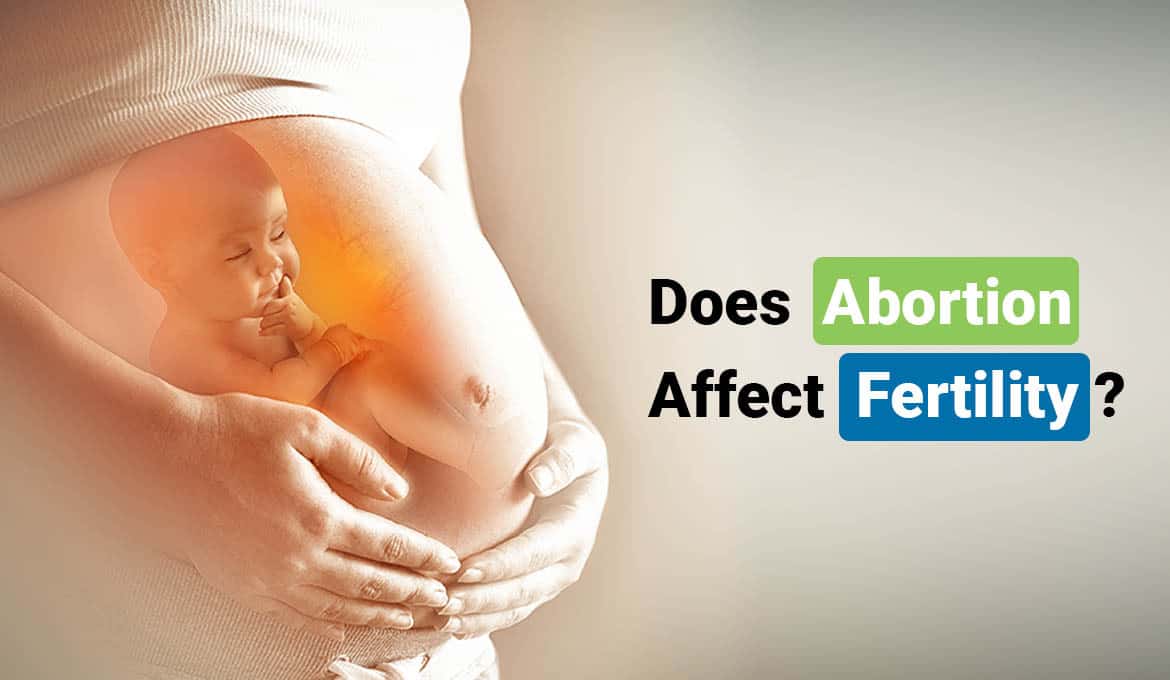
Whether you had an abortion in the past or are preparing yourself to undergo one, a prevalent concern for many is whether or not their fertility will be affected in the future. The short answer to this concern is that abortion does not impact your fertility. This article discusses the types of abortion and their impact on your body.
The medical definition of abortion is the planned termination of a pregnancy that ends in miscarriage. In most cases, an induced abortion causes concerns over the future of fertility and pregnancy. However, undergoing an abortion does not affect the ability to conceive in the future. This article will help you understand the future of fertility after getting an abortion.
There are two methods of abortion – medical and surgical, which, according to the type, may affect fertility in the future. The process of abortion usually depends on the stage of pregnancy. In addition, timing plays a key factor in determining when a person requires a medical or surgical abortion.
Medical Abortion
Medical abortion is when medicine is taken to induce abortion. These medicines are usually taken so that the woman undergoes a miscarriage. They ensure that any and all fetal products of conception are passed to reduce infection and that women can get pregnant in the future.
There are various pills for this process. One of them is mifepristone which blocks progesterone, a pivotal hormone the body requires to continue the pregnancy. Another pill is misoprostol, taken 24 to 48 hours later, which induces cramping to remove the content of the uterus.
The medical abortion method is often prescribed depending on gestational age or the stage of pregnancy the individual is currently in. Compared to surgical abortion, medical abortion provides a number of benefits.
It can feel less invasive than going in for surgery. However, medical abortion can bring disadvantages like severe bleeding. Moreover, the procedure is not possible to do after nine weeks of pregnancy, and the process is longer.
Additionally, it can also result in incomplete abortion, infection, fever, diarrhea, stomach pain, and medication-induced allergic responses.
Surgical Abortion
Surgical abortion is a process to end the pregnancy or to dispose of the fetal remains of the pregnancy. Unlike medical abortion, this procedure does not depend on the timing. There are different ways doctors can perform a surgical abortion. One method is suction curettage, often used in the first trimester, which is at or before 13 weeks.
Medical and Surgical Abortion
Both these abortion methods carry minimal health risks overall. While the chances of anything going wrong during the abortion are unlikely, as with any medical procedure, there are certain potential risks, such as infection, excessive bleeding, and injury to the reproductive organs, which can be better treated with the help of a medical professional. The risk of developing a major abortion-related health complication that requires hospitalization is very low.
Fertility After Abortion
Undergoing an abortion does not usually affect the possibility of conceiving later. It also does not elevate the risks of pregnancy complications if trying to get pregnant again. The misconceptions attached to abortions present them as a risk to future fertility.
These misbeliefs linked to abortion procedures are building on stigma and a culture of silence. There is no proof that your fertility will be affected if you have a safe abortion.
Most doctors suggest using a certain kind of birth control after abortion, as a woman can get pregnant again when she ovulates.
In addition, doctors advise them to avoid sexual intercourse for a period of time after an abortion in order to give the body time to heal. Clinical professors of obstetrics and gynecology opine that the procedure will not affect pregnancies in the future.
Although abortion procedures are considered to be safe, there are some risks associated with them, such as excessive bleeding or infection following the procedure.
An example of how the complication of abortion affects future pregnancies is a condition called incompetent cervix, which does not affect fertility directly but makes it harder to carry a pregnancy to term.
An incompetent cervix occurs when the cervix softens and dilates too early in pregnancy before it is safe to deliver a baby. This can sometimes result in miscarriage or early birth. Cervical trauma from procedures like surgical abortions is one risk factor for an ineffective cervix.
Another example is Asherman’s syndrome, where the scar tissue makes it easier for the uterus and cervix to stick together, which reduces the amount of space available for a healthy pregnancy. Asherman’s syndrome can result after any surgery involving the uterus.
The idea that abortion can affect fertility is rooted in the scenarios of infertility resulting from abortions done in unsafe, underground practices. There are no reasonable grounds to link infertility with abortion except in rare instances of critical uterine injury and infections/pelvic inflammatory disease (PID).
There are numerous proven examples of getting pregnant after undergoing an abortion, and this process of the uterus removing fetal remains sans complications does not impact the ability to conceive again.
Another way to understand the impact of abortion on fertility is the time period it takes for ovulation to return after the procedure.
Abortions carried out in a clean and safe medical environment with licensed medical professionals are less likely to lead to complications that affect fertility.
However, it is important to always talk to the doctor about the concerns and opt for suitable procedures. Unsafe abortions lead to permanent damage to reproductive organs.
Therefore, it is crucial to ensure that your healthcare provider is trained before they perform a medical procedure or advise you on this.
If you have issues getting pregnant following an abortion, you should consider other factors that can affect your fertility, as abortion cannot cause problems conceiving. Other factors include:
- Age
- Lifestyle habits
- Medical history
- Partner’s fertility
Your fertility decreases as you age, especially for women 35 and older. Moreover, lifestyle habits like smoking and using drugs can affect fertility. Additionally, past incidents of sexually transmitted infections (STIs) such as chlamydia or gonorrhea affect fertility as well.
Fertility is also affected by chronic diseases such as diabetes and hormonal and autoimmune disorders. Semen quality also affects a woman’s ability to conceive.
Even if you have previously conceived with the same partner, lifestyle habits and aging may have an impact on your partner's fertility.
The best step to take if you’re having problems getting pregnant is to consult a gynecologist. They can advise you on lifestyle tips that will help and recommend a fertility specialist who can aid you in finding potential reasons, causes, and other possible treatment methods.
Conclusion
Undergoing an abortion does not mean that you cannot get pregnant in the future. However, if you have problems conceiving, it is always better to consult a gynecologist for advice. In most cases, an abortion does not affect fertility or later pregnancies, and women can start ovulating and become pregnant within 2 weeks post the procedure.
In rare conditions, surgical abortion may cause damage to the cervix or scar the uterine wall, making it more difficult to become pregnant again. They also raise the possibility of future preterm birth, poor birth weight, or pregnancy loss.
However, there are significant safety advantages to both medical and surgical abortions. The appropriate method will depend on the stage of pregnancy and on a person’s preference, which the medical professional will guide you through.
Therefore, anyone with queries and concerns about pregnancy following an abortion should consult a healthcare professional.
FAQs
Q1: Do abortions make it harder to conceive?
Ans: No. In certain cases, women who undergo multiple surgical abortions using a curette (a medical instrument used to remove tissue from bodily cavities) accrue a higher risk of scarring the inner lining of the uterus, also known as asherman syndrome. This condition can cause difficulty in becoming pregnant in the future.
Q2: How long is infertility after abortion?
Ans: You can conceive again quickly after an abortion. An egg can be released from the ovary as soon as five days after the treatment so you can become pregnant again before the next period.
Q3: What causes a miscarriage after an abortion?
Ans: Women suffering from infections, hemorrhages, or uterine damage post-surgical abortion are likely to face subsequent fertility issues, including miscarriage.
Q4: Does the abortion pill affect fertility?
Ans: There is no risk to future pregnancies or overall health by taking the abortion pill unless there is a rare and serious complication that is not properly treated. It is one of the safest and most common ways to have an abortion.
Q5: Can a miscarriage affect future pregnancy?
Ans: Most women undergoing a miscarriage have had healthy pregnancies down the line. Only a small number of women have experienced repeated miscarriages.
Read Also:












